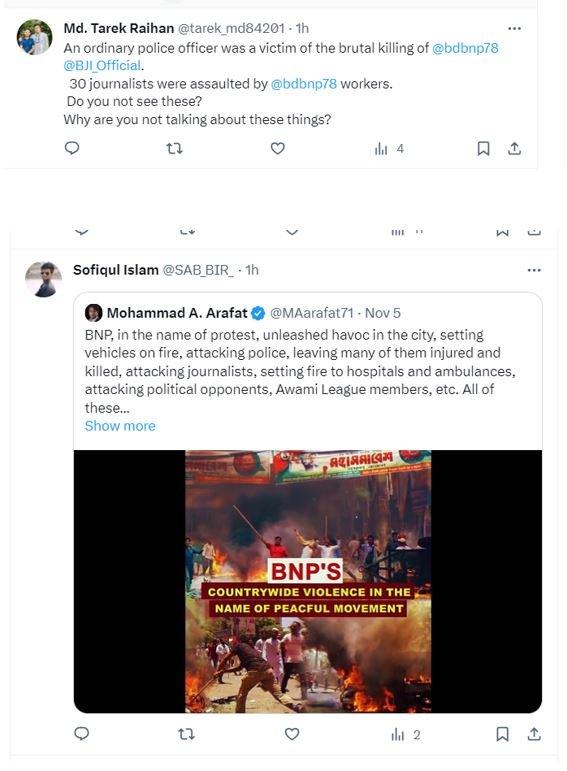It is also important to shed light on why the European Union is so quiet about the ongoing humanitarian situation in Palestine while being overly concerned about Bangladesh’s internal politics.
In light of the recent events in Bangladesh, the European Union’s (EU) statements of apprehension regarding the unrest and subsequent apprehension of leaders of the Bangladesh Nationalist Party (BNP) have initiated international scrutiny of the dominant discourse. The resurgence of violence was predominantly instigated by the BNP and its affiliates during a tense rally on 28th October. It has prompted substantial inquiries regarding the circumstances surrounding the incidents and the subsequent actions implemented by the authorities.
Josep Borrell, the High Representative for Foreign Affairs and Security Policy of the European Union, expressed voiced the concern on X, formerly known as Twitter, on Sunday. He wrote: “Concerned by the arrest of over 8,000 opposition activists in Bangladesh. Justice must be served in all cases.”
Contrary to what Josep Borrell, said about the arrest of “over 8,000 opposition activists,” there is no solid evidence to support such a number. Indeed, this figure seems to lack foundation, which calls into doubt the legitimacy of the European Union’s position on the subject.
BNP’s disruptive rally: Understanding the police’s reaction
As BNP and its affiliates organized a massive rally to demand a single point, violence recently resumed in Bangladesh. While peaceful demonstrations are essential to democracy, all political bodies must defend these rights respectfully. The BNP-Jamaat leaders’ disruptive actions for the past few days have thwarted the nation’s efforts to preserve peace and stability. The recent activities of the BNP have been hindered by reports of assaults on law enforcement personnel, the tragic deaths of a journalist and a policeman, and the disorder caused by incidents of arson and violence.



Furthermore, the violent actions, such as the attack on the home of the Chief Justice and the targeting of journalists, show a clear lack of respect for the basic democratic values. These actions not only undermine the democratic process but also pose a threat to national security. Restoring law and order thus required the apprehension of the instigators as a consequence. However, the claim that more than 8,000 opposition leaders have been arrested lacks solid proof, which makes it hard to believe. This addresses the need that how important it is to use verified information to shape public opinion.



Why silent on Palestine’s humanitarian crisis?
It is also important to shed light on why the European Union is so quiet about the ongoing humanitarian situation in Palestine while being overly concerned about Bangladesh’s internal politics. Since October 7, Israeli attacks on Gaza and the occupied West Bank have claimed the lives of 10,022 Palestinians and 152, respectively. The European Union’s lack of substantial intervention in this matter raises doubts regarding its dedication to upholding human rights and promoting international peace.



The siege on Gaza has caused food and medical supplies to stop flowing, and civilians are still being targeted. The European leaders have taken a complicated diplomatic stance and they have shown support for Israel in public. Furthermore, European leaders’ declarations, delivered in the presence of Israeli Prime Minister Benjamin Netanyahu, have exhibited an unparalleled degree of solidarity with Israel.

Hence, an inquiry arises as to the rationale behind the European Union’s heightened attention towards the situation in Bangladesh, disregarding the substantial data available, while maintaining a subdued position regarding the humanitarian crisis unfolding in Palestine. Does the European Union’s approach to global crises reflect a selective calculus? Or, do geopolitical considerations dictate the order in which it prioritizes particular issues over others? In the midst of these intricate and urgent challenges confronting the international community, it is critical to comprehend the EU’s actions in order to promote a more equitable and just international order by discerning their motivations and ramifications.


